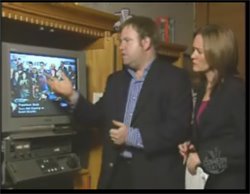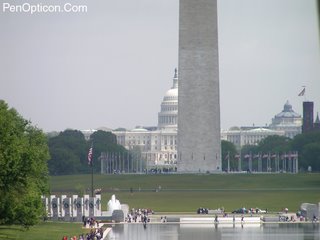There is a fundamental difference between the north and south shores of Lake Erie: the Canadian side is
dotted with oil and gas wells while the American side is not. In fact, all oil and gas development around Lake Erie -- with the exception of a few wells in Michigan -- is taking place on the Canadian side. There is, as always, a bit of history to this. Canada's oil industry began in the 1850's when asphalt beds were discovered along Lake Erie. Then, in 1857, while drilling for water in the same area, workers struck oil and North America's first oil well was born. It is no coincidence that Detroit and Windsor grew to become the heart of the North American auto industry -- just a stone's throw from the site of these first wells.
 That’s all very interesting, you say, but why are you telling me this? Well, as a typical North American consumer, I profess to be concerned about the environment, but like millions of others I still fill up the car and turn up the heat as needed and I don't really think about where the gas comes from. But as we drove along Talbot Trail east of Leamington last weekend, we noticed dozens of oil wells on the bluffs that overlook Lake Erie. Somehow they looked out of place and wrong. When I stopped to take some pictures, I could smell the crude and was mesmerized by the incessant noise and power of these machines. How many wells are there? How much oil do these things produce? Are they safe?
That’s all very interesting, you say, but why are you telling me this? Well, as a typical North American consumer, I profess to be concerned about the environment, but like millions of others I still fill up the car and turn up the heat as needed and I don't really think about where the gas comes from. But as we drove along Talbot Trail east of Leamington last weekend, we noticed dozens of oil wells on the bluffs that overlook Lake Erie. Somehow they looked out of place and wrong. When I stopped to take some pictures, I could smell the crude and was mesmerized by the incessant noise and power of these machines. How many wells are there? How much oil do these things produce? Are they safe?
According to an Ontario Ministry of Natural Resources report, there are 1,161 oil wells and 744 gas wells operating along the north Lake Erie shoreline. In addition, 478 gas wells operate offshore on Crown land under the lake itself. In total, these reserves provide just one to two percent of Ontario's oil and gas requirements. Geologists estimate that about half of the original deposits still remain in the ground. In addition to these active wells, there are some 20,000 plugged, suspended and abandoned wells scattered around the province.
Only in Canada?
The reason we don't find oil wells along the American Lake Erie shore is partly because of the Energy Policy Act of 2005. When the U.S. Congress passed the act last year, it was widely criticized for subsidizing large oil and coal concerns without devoting enough resources to alternative energy and conservation. With billions in new subsidies lining their corporate pockets, Texas-based oil execs had every reason to smile after the act was passed, but so did Great Lakes-area environmentalists: the act permanently protects the American Great Lakes from future oil and gas development.
Not surprisingly, American environmental groups are furious that Canada continues to extract oil and gas from Lake Erie. In particular, they worry about "directional drilling" -- land-based drilling that angles out into the lakebed. The Public Interest Research Group in Michigan cited 51 drilling-related leaks between 1990 and 1995. The group told the Detroit News that "Drilling has been neither safe nor risk-free" and argue that the relatively small amounts of oil and gas that can be recovered from Lake Erie is not worth the risk. One wonders why the Ontario and Canadian governments are willing to risk this shoreline for such a miniscule amount of oil and gas. The MNR map below shows oil, natural gas and natural gas storage pools in southern Ontario. Gas reserves are shown in red, oil in green. The blue areas near Sarnia are gas storage pools.

Although natural gas could be recovered from a large area in and around Lake Erie, these are not expected to be high-yield deposits. And, even though gas and oil prices are higher than ever, only about one hundred new wells are being commissioned each year. It is not a huge industry, but it is dispersed over a large and environmentally sensitive area that includes key wildlife and birding areas such as Point Pelee, Long Point and Rondeau Provincial Park. The risk to human health and the environment is not worth the return, but Ontario still encourages oil and gas companies to gamble with our land and fresh water. Groundwater contamination from Ontario's 20,000 decommissioned and abandoned wells is already a real possibility. If the province's remaining oil and gas deposits are developed, this risk can only increase and more Lake Erie shoreline habitat will be disrupted. Just ask Stanislav Patin, a prominent Russian scientist who specializes in marine environmental problems. Patin has written extensively on the problems associated with natural gas and oil extraction in marine environments and has documented the toxic effects of hydrogen sulfide (which can comprise up to 20% of natural gas) on marine life as well as air and soil. He further notes that large quantities of methane gas (30-300 cubic metres/ton) are released into the atmosphere when oil is extracted.
Little wonder that our American neighbors are fuming over Canada's smug environmental stance. Instead of passing packaging laws that would result in less landfill and more recycling, we send our garbage to Michigan in hundreds of diesel-burning trucks. Instead of doing what ever it takes to reduce gas and oil energy needs, we allow an inefficient and potentially hazardous oil and gas industry to puncture the province with new wells. And our governments continue to pay lip service to the environment while granting approval for new low-density developments and roads and providing subsidies to foreign auto-makers for building new factories.
The Hypocrisy of Hell’s Half Acre
 The waste and hypocrisy of these outmoded energy policies was evident last week while I waited for a bus. There was a York Region Transit bus idling next to my stop. "Idling" is not the correct word -- this behemoth was roaring in neutral for at least 10 minutes while its billowing black exhaust made people gag. I banged on the folding doors and asked the driver if he would turn off the engine or at least stop revving it. His answer: "I can't turn it off or it won't start up again". Then he closed the folding doors and continued to sip his coffee. As angry as I was, it appears that this attitude is nothing new:
The waste and hypocrisy of these outmoded energy policies was evident last week while I waited for a bus. There was a York Region Transit bus idling next to my stop. "Idling" is not the correct word -- this behemoth was roaring in neutral for at least 10 minutes while its billowing black exhaust made people gag. I banged on the folding doors and asked the driver if he would turn off the engine or at least stop revving it. His answer: "I can't turn it off or it won't start up again". Then he closed the folding doors and continued to sip his coffee. As angry as I was, it appears that this attitude is nothing new:
For many years Turner Valley had the dubious distinction of wasting vast amounts of natural gas. In the 1920s it was common practice to pass the gas through separators, then flare it off. Producers flared the by-product gas after producing the oil, greatly reducing the oil reservoir pressure thus reducing the amount of recoverable oil. With this practice the Turner Valley field realized only a portion of its oil potential. Many of these flares were in a small ravine known to locals as Hell’s Half-Acre. During the 1920s when exploration and production was booming, the roar of the flares could be heard more than 30 miles away in Calgary. In neighboring communities homes were built by this light, grass around the flares would stay green year round, local hunters would hunt by this light and migrating birds would winter in their warmth.
Other accounts of Turner Valley tell how unemployed workers from across Canada and the U.S. arrived in the area to look for work and ended up sleeping outdoors in the warmth of the flaring gas. While we flatter ourselves that we know better, we have simply taken the Turner Valley approach and applied it globally: billions of city lights burn 24x7, millions of engines idle in heavy traffic, propane-powered outdoor heaters blow heat into the sky, our ridiculous dalliance with gas-guzzling SUVs continues and we continue to buy truckloads of electronic gadgets and appliances that can never be completely turned off. It is a never-ending list.
Turner Valley itself is a better place today, but we have globalized the flaring gas attitude and it seems that we are too afraid of the Petrocracy to turn it off.











